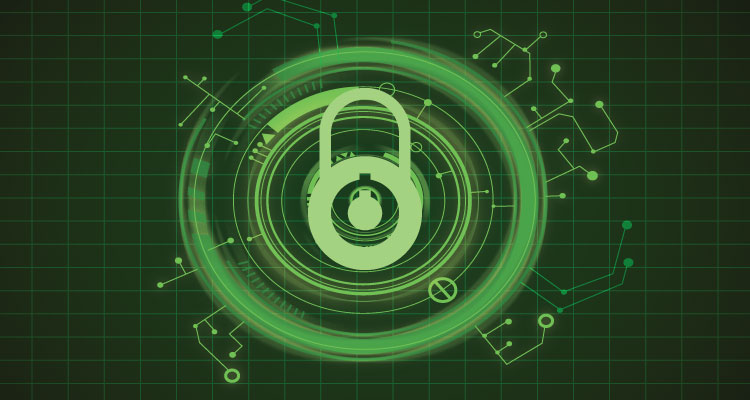With the frequency of data breaches and attacks on the rise, it’s no longer an option for companies to have a weak defense to secure themselves against these cyberattacks. Business’s Cybersecurity is becoming more and more important and vital. Just last year, these attacks hit companies big and small, and many individuals were hit by cybercriminals retrieving their credit card or banking information. As a result, organizations and individuals all across the globe grew afraid of the harsh reality regarding cyberattacks.
Because of this, business leaders and IT experts have to establish cybersecurity methods that work to protect the institutions they’re designed for — and keep criminals out. These 10 tactics can help shore up your company’s cybersecurity.
Table of Contents
Toggle1. Data Encryption
From Social Security numbers to bank account information, hackers are on the prowl to retrieve this valuable data. That makes it critical for you to implement reliable, top-notch data encryption services. Encryption experts believe it’s no longer possible to build a fortress around a business’s data. Instead, encryption — scrambling data so it’s unreadable to everyone but the intended recipient — is the best safeguard against someone determined to get in.
2. Hardware Security
Some cyberattacks come through hardware besides your computer system. Thus, you must utilize securing features on desktops, laptops, mobile devices, printers, etc. There are secure services available, like USB security keys, locks for servers and encryption for hardware. You can also track down stolen desktops, laptops and mobile devices through cloud computing software.
Laptops have a higher risk of being stolen or lost than desktops because of their portability; extra steps must be used to protect sensitive data. It’s also very important not to leave your laptop in your vehicle. If you absolutely must, you should leave it in the trunk — the least visible place in your vehicle.
3. Strong Passwords for Better Business’s Cybersecurity
Don’t use passwords an individual could easily guess if he knew you well enough. You shouldn’t use any personal information, like your birthdate; avoid the backward spelling of common words or easy sequences, such as sequential numbers or letters. A hard-to-crack password should include a combination of symbols, numbers and upper- and lowercase letters for a total of at least eight characters. This may seem like a pain when it comes to remembering your password, but it will ultimately keep your company safer.
Other password advice includes instructing every employee to have his or her own username and password. This makes it easy to detect whether a person hacked, or attempted to hack, someone’s computer. Once detected, your cybersecurity company will react with the correct incident response, and you can immediately update the password and use other measures for security.
4. A High-Quality Firewall
Firewalls are mandatory. They guard your network by controlling the internet traffic flow that comes in and out of your company. Most firewalls are so vigilant about filtering out threats that they’ll block dangerous websites altogether. And if customizing your software firewalls isn’t enough, you can also install hardware firewalls. These devices are installed on your network’s outer layer, such as your internet connection entry point.
5. Antivirus Protection
Anti-malware and antivirus protection are important for online security guarding. These packages are helpful for scanning your system for malware installations, as well as scanning your email attachments for viruses.
6. Regular Program Updates
The more updated your programs are, the more secure your systems will be. Updating your software regularly will keep you from leaving gaping holes open to hackers. Programmers have often fixed or addressed recent issues since the last program update, so take advantage of the free security.
7. Mobile Device Security
Because smartphones carry so much valuable information now that they’re just as important as company computers. Like laptops, they’re also easier to lose or have stolen. Thus, password protection, encryption software and remote wiping are essentials. Remote wiping is a very effective method that completely wipes a smartphone clean of valuable information when it’s lost or stolen, and the owner of the phone can enable this feature at a moment’s notice.
8. Regular Backups
Regular backups are vital; an external hard drive is a strong method for backing up data. Many external hard drives can be set up to make copies of data daily, weekly or monthly. It’s also a good idea to back up your information in the cloud. This enables you to easily retrieve your information in case your computer system has been lost, stolen or damaged.
9. Diligent Monitoring
You must hire staff to monitor your systems on a constant basis and be ready for an incident response the moment an attack or threat occurs. If your team is too small to justify investing in an in-house IT security person, outsource this vital task.
One good software for monitoring your system is data-leakage prevention. Set up at main touchpoints of the network to search for specific data coming out of the internal network, the configuration of this software can be narrowed to search for code pieces, credit card numbers or any information indicative of a breach.
1o. Staff Training
Educate your staff about the importance of online security, as well as the mandatory protocols. They must learn how to create a strong password; change this password every 90 days; avoid clicking on unknown links, emails or downloads; and ensure they log out when they’re done using their company devices.
Cyberattacks are on the rise like never before so Business’s Cybersecurity are more important than ever. As a result, businesses and individuals who’ve fallen victim to these attacks have lost millions of dollars. By investing in these methods, you can ensure your business, family, financial well-being and privacy remain intact. It took a lot of hard work to build your company — don’t let a hacker demolish it in minutes.














